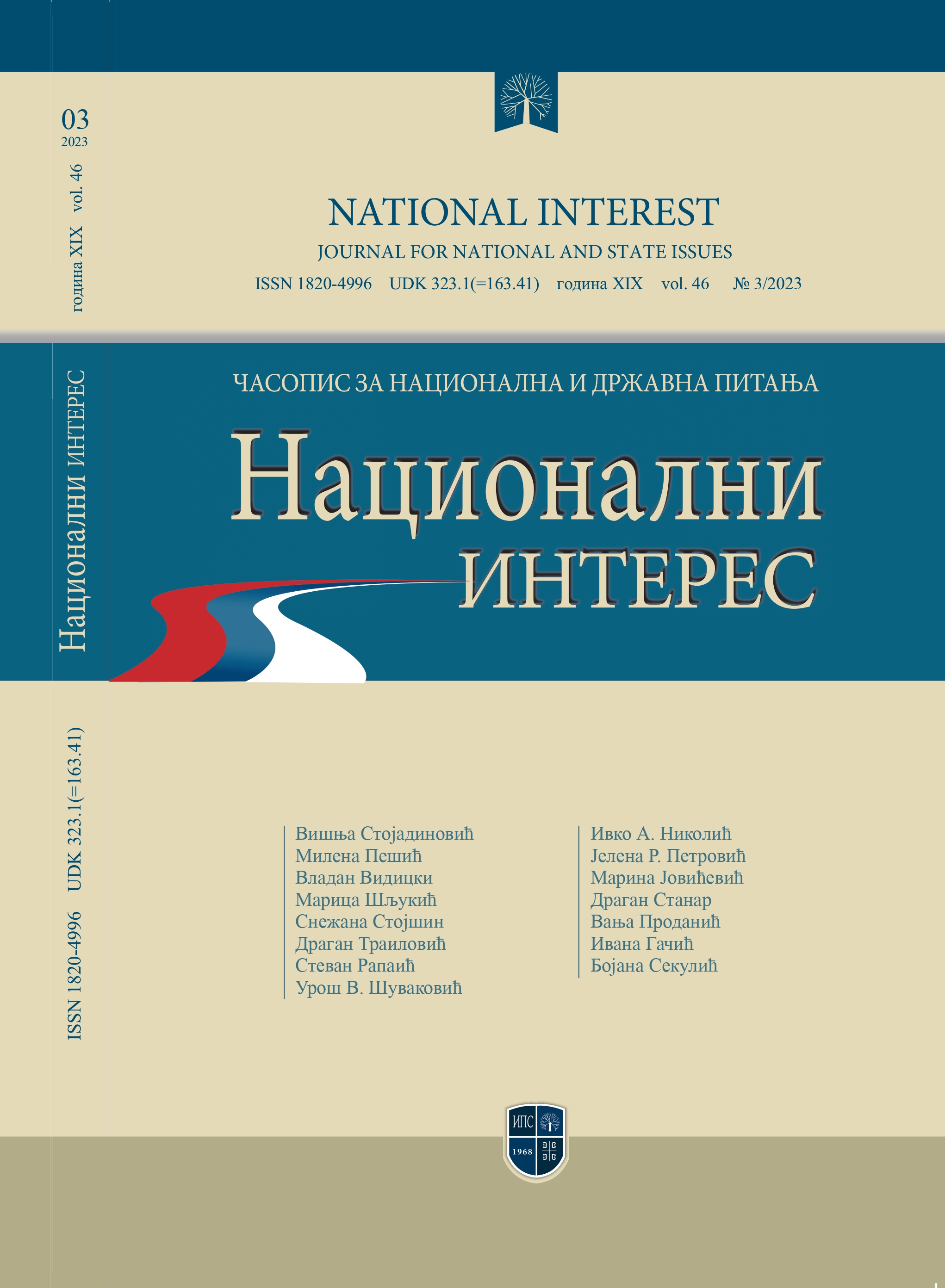DEFINING THE CONCEPT OF LIBERTY: THREE DIFFERENT APPROACHES
Abstract
The subject of this paper is a thorough consideration of the concept of liberty. The starting point is Berlin's distinction between positive and negative understanding of liberty. In this sense, Berlin's definition of positive and negative liberty is presented first, as well as the reasons on the basis of which these concepts can be considered logically independent. The author then analyzes MacCallum's critique on Berlin's thesis on the existence of two different concepts of liberty as well as MacCallum's thesis on the existence of only one concept of liberty. MacCallum's understanding of liberty as a triadic relation and his thesis on possibility of a unique formal presentation of all eligible statements about liberty are being examined. After MacCallum's critique, the author analyzes another relevant critique of Berlin's point of view: Skinner's thesis on the existence of a third concept of liberty. In this sense, Skinner's understanding of liberty as the absence of political and social dependence is being discussed. In light of above-mentioned considerations, the author concludes that MacCallum's and Skinner's critiques are unsuccessful and, consequently, Berlin's thesis on the existence of two different concepts of liberty is justified. Finally, the author points out that defining liberty is not merely academic topic, moreover - it has relevant political implications.
References
Berlin, Isaija. 1992. Četiri ogleda o slobodi. Beograd: „Filip Višnjić”.
Berlin, Isaiah. 1980a. “Logical Translation.” Concepts and Categories, Philosophical Essays:56–80. Oxford: Oxford University Press.
Berlin, Isaiah. 1980b. “The Purpose of Philosophy.” Concepts and Categories, Philosophical Essays: 1–11. Oxford: Oxford University Press.
Berlin, Isaiah. 2013. “The Pursuit of the Ideal.” The Crooked Timber of Humanity: Chapters in the History of Ideas: 1–20. Princeton University Press.
Gaus, Gerald F. 2000. Political Concepts and Political Theories. Oxford: Westview Press.
Gray, John N. 1980. “On Negative and Positive Liberty.” Political Studies 28 (4): 507–526.
Hobs, Tomas. 2011. Levijatan. Beograd: Pravni fakultet Univerziteta u Beogradu. 30: 68–96.
Kant, Imanuel. 1974. Um i sloboda. Beograd: Mladost.
MacCallum, Gerald C. 1967. “Negative and Positive Freedom.” The Philosophical Review 76 (3): 312–334.
Kukathas, Chandran. 1994. “Defending Negative Liberty.” Policy 10 (2): 22–26.
Oppenheim, Felix. 1961. Dimensions of Freedom. New York: St. Martin’s Press.
Oppenheim, Felix. 1973. “Facts and Values in Politics.” Political Theory 1: 54–78.
Skinner, Quentin. 2002. “A Third Concept of Liberty.” Proceedings of the British Academy 117: 237–268.
Svift, Adam. 2008. Politička filozofija. Beograd: CLIO.
Stivenson, Čarls. 1977. „Ubeđivačke definicije.” Treći program (32): 285–305.
Stančić, Višnja. 2020. „O opravdanosti distinkcije između pojmova pozitivne i negativne slobode.” Doktorska disertacija. Univerzitet u Beogradu: Filozofski fakultet.

